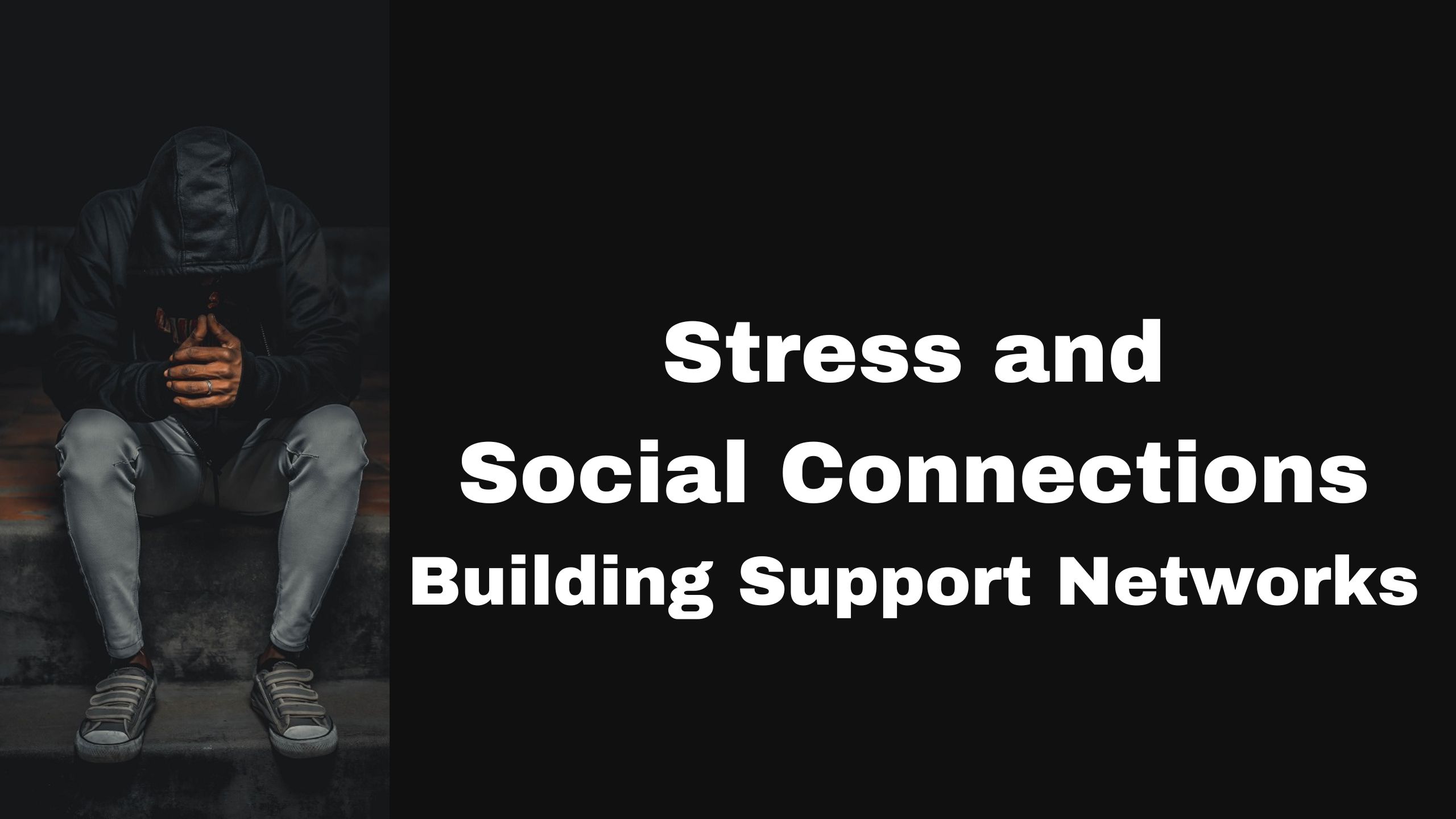Stress and Social Connections: Building Support Networks
In our increasingly busy lives, stress has become a common companion. While it’s a natural response to life’s challenges, chronic stress can take a toll on our physical and mental health.
One effective way to manage stress is by nurturing strong social connections and building support networks. This article explores the connection between stress and social connections and offers insights into how fostering relationships can help mitigate stress and promote well-being.
The Stress-Social Connection
Stress is a complex phenomenon influenced by various factors, including genetics, lifestyle, and external stressors. Social connections and relationships play a significant role in how individuals perceive and manage stress. Here’s how the stress-social connection works:
Emotional Support: Strong social connections provide emotional support, allowing individuals to share their feelings, worries, and concerns with trusted friends or family members.
Practical Assistance: Support networks can offer practical assistance during stressful times, such as helping with daily tasks or providing resources and advice.
Stress Buffer: Social connections act as a buffer against stress by promoting a sense of belonging and reducing feelings of isolation.
Coping Mechanisms: Friends and family can offer coping mechanisms and strategies for dealing with stressors effectively.
Enhanced Resilience: Individuals with strong social connections tend to exhibit greater resilience in the face of stress, bouncing back more quickly from difficult situations.
Building and Nurturing Support Networks
Prioritize Relationships: Make an effort to prioritize your relationships. Dedicate time and attention to nurturing your social connections.
Expand Your Social Circle: Engage in activities and hobbies that align with your interests. This can help you meet like-minded individuals and expand your social circle.
Be a Good Listener: Show genuine interest in others and practice active listening. Being there for friends and family when they need to talk can strengthen your bonds.
Reach Out: Don’t hesitate to reach out to friends and loved ones when you need support. Vulnerability can lead to deeper connections.
Join Social Groups: Participate in social groups, clubs, or organizations related to your hobbies or interests. These can be excellent places to meet new people.
Quality Over Quantity: Focus on the quality of your relationships rather than the quantity. A few close and reliable connections can provide significant support.
Maintain Balance: While social connections are important, it’s also crucial to set boundaries and ensure you have time for self-care.
Express Gratitude: Show appreciation for your social connections. Expressing gratitude can strengthen your relationships and enhance your overall well-being.
Professional Help: If you find it challenging to build or maintain social connections due to social anxiety or other issues, consider seeking professional help or counseling.
Support Groups: Join support groups or online communities related to specific stressors or challenges you’re facing. These groups can offer valuable insights and empathy.
Conclusion
Social connections are a fundamental aspect of human well-being, and they play a significant role in managing stress effectively. By building and nurturing support networks, you can create a safety net that provides emotional, practical, and social support during stressful times. Remember that it’s never too late to strengthen your social connections or reach out for support. Cultivating and maintaining healthy relationships is a lifelong journey that can significantly enhance your resilience to stress and contribute to your overall happiness and well-being.


FYI, I came across you guys and was checking out your website. It’s good! But I did find a couple of issues that are holding you down in Google search results.
If you’d like, I am happy to make you a quick website video audit walking you through those fixes… no strings attached.
No worries if you are not interested, but I just wanted to offer.
Let me know if I can do that for you.
My email: globalpanther@gmail.com
Skype: live:.cid.44cd50da56c7b19b
Samantha Val